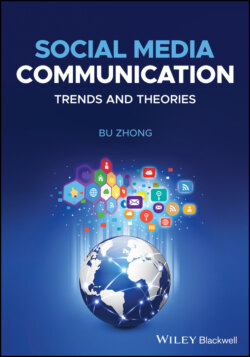Читать книгу Social Media Communication - Bu Zhong - Страница 9
The Power of Social Media
ОглавлениеCongresswoman Alexandria Ocasio-Cortez said that it was inadequate for her Democratic colleague, Conor Lamb, to spend merely $2,000 on Facebook the week before the election, although he did manage to win in Pennsylvania (Herndon, 2020). “If you’re not spending $200,000 on Facebook with fund-raising, persuasion, volunteer recruitment, get-out-the-vote the week before the election, you are not firing on all cylinders,” said Ocasio-Cortez (Herndon, 2020). To her, digital investment and advertising on Facebook was important because that’s where voters gathered, and both positive and negative political rhetoric went viral all the time. In political campaigns, no one could afford to allow Facebook to radicalize things without fighting back, she said (Herndon, 2020).
Of course, there are many factors contributing to the success of a political campaign, but politicians agree that a major one is the way the campaign team uses social media to raise money, motivate voters, and win support. In a networked society, a revolutionary social media strategy must be an integral part of any political campaign. Despite the power of social media being widely recognized, many people lack a coherent and analytic account of why certain social media strategies work while others do not. Fewer understand the mechanism of social media usage, for instance, how political views, participation, and voter behavior may be swayed by information disseminated on social media.
Another big lesson we learned from the 2020 US election was that social media could be used as a venue to spread weaponized misinformation, making people lose confidence and faith in those with different political beliefs. There was a time of distrust after the election caused by a profound lack of trust in the US political system and the mainstream media. Some even exhibited distrust in the future, which shocked the world, as Americans have been known for their persistent optimistic belief in the future. As a hallmark of their nation, Americans have long held the rosy assumption that the arc of justice moves inexorably upwards, and that the future could be and should be brighter than the past (Short, 2020). After that optimism weakened, more people faced a fearful future filled with constant anxiety and indignation. Some people believe that social media caused the problem of social distrust.
